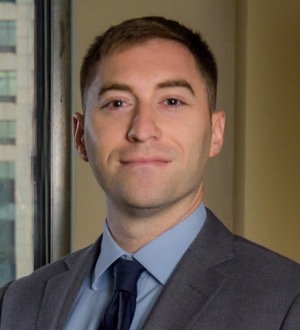The Louisiana Supreme Court recently addressed two certified questions from the United States Fifth Circuit Court of Appeals in Doe v. McKesson, a federal lawsuit which arose out of a protest in Baton Rouge, Louisiana, in 2016.
DOE V. MCKESSON – BACKGROUND
The underlying case, originally pending in the Middle District of Louisiana, arose out of protests in Baton Rouge, Louisiana, following the July 2016 death of Alton Sterling. The lawsuit was filed on behalf of an unnamed Baton Rouge Police Department officer, Officer John Doe, against the Black Lives Matter (“BLM”) movement and DeRay McKesson, an alleged leader and co-founder of BLM. During protests in the City of Baton Rouge, Officer Doe claimed that he was struck in face with a concrete or rock-like substance, causing injuries to his teeth, jaw, brain, and head. Officer Doe claimed the defendants were liable to him because they knew or should have known that the protest would become violent and result in serious personal injuries.
LOUISIANA SUPREME COURT RULING
In the district court, the defendants successfully moved for dismissal, which was eventually reversed by the Fifth Circuit. The United State Supreme Court then agreed to review the case to determine whether the theory of liability adopted by the Fifth Circuit violated the First Amendment. However, the U.S. Supreme Court vacated the Fifth Circuit decision and remanded the case to the Fifth Circuit to certify two questions on Louisiana law to the Louisiana Supreme Court:
(1) Whether Louisiana law recognizes a duty not to negligently precipitate the crime of a third party; and
(2) Assuming McKesson could otherwise be held liable for a breach of a duty owed to Officer Doe, whether Louisiana’s Professional Rescuer’s Doctrine bars recovery under the facts alleged.
Writing for the majority of the Louisiana Supreme Court, Justice Hughes held that, under the allegations of the complaint, it could be found that McKesson’s actions in provoking a confrontation with officers by blocking a public highway would render McKesson liable for injuries to an officer compelled to attempt to clear the obstruction. He further held that, under Louisiana’s pure comparative fault scheme, the Professional Rescuer’s Doctrine has been abrogated and the doctrine no longer bars recovery under the theory of assumption of risk.
In addition to Justice Hughes’ opinion, a number of concurrences, with reasons, were filed by Chief Justice Weimer, Justice Genovese, and Justice Crain. Justice Griffin was the lone dissenter, noting that the finding of a duty in this case would have a chilling effect on political protests.
WHAT COMES NEXT
Now that these certified questions on state law have been addressed, the constitutional question of whether such a theory of personal liability violates the First Amendment can be addressed in the federal court proceeding.

















